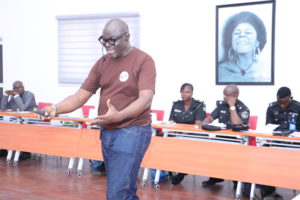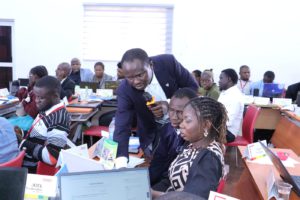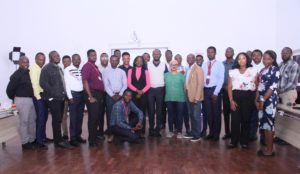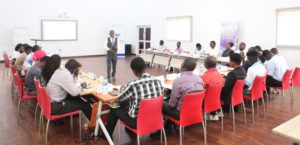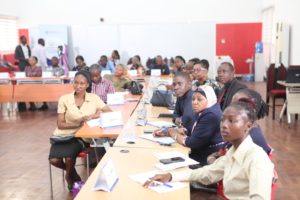The just suspended strike by the Nigerian Association of Resident Doctors, which took its toll on patients while it lasted, is an indication that the outbreak of COVID-19 pandemic may never change government’s poor attitude towards the health sector.
Members of NARD had, on Thursday, suspended their indefinite strike for two week to allow further negotiation with the Federal Government.
Recall that NARD had, on Monday, embarked on an indefinite strike, protesting the failure of government to meet some of the demands made in June following a week-long strike action.
The doctors are demanding the provision of genuine group life insurance and death-in-service benefits for all health workers; immediate payment of the Medical Residency Training funding to all NARD members as approved in the revised 2020 budget.
Other demands include payment of the outstanding April, May and June COVID-19 inducement allowances to all health workers, among others.
Yet, the Federal Government, on September 6, said it had spent N30.5bn between April and July in the fight against COVID-19 pandemic in Nigeria.
The Accountant-General of the Federation, Mr. Ahmed Idris, disclosed this in response to the Freedom of Information request dated August 10, 2020, sent to him by the Socio-Economic Rights and Accountability Project and Connected Development.
“The Federal Government received a total of N36.3bn in COVID-19 fund donations and the N30.5bn spent represented 84 per cent of the total amount.
“We spent N30,540,563,571.09, representing 84 per cent of the N36.3bn public funds and donations received as response to COVID-19 between April 1, 2020 and July 31, 2020, leaving the balance of N5.9bn,” the AGF had said.
It is so disheartening that the Federal Government claimed to have spent such a whopping sum of money in the fight against COVID-19 in four months, yet health workers risking their lives to combat the virus are protesting to be paid the promised hazard allowances.
Before the suspended strike, NARD had, on June 15, 2020, embarked on an indefinite strike to press home their demands for better welfare.
Following the NARD strike, the Federal Government released N4.5 billion hazard allowance to be paid to the doctors with government promising to meet their demands.
The latest strike, no doubt, is an indication that the Federal Government reneged on its promise with patients at the receiving end.
While patients are still groaning over the NARD strike, the Joint Health Sector Unions, a group of other health workers other than doctors, has made good its promise to embark on a nationwide seven-day warning strike if the government failed to meet its demands, which include payment of hazard and inducement allowances by midnight of Sunday, September 13.
This is one strike too many at a crucial time such as this.
The Medical and Dental Consultants Association of Nigeria had blamed the NARD strike on government failure to perform its obligations and also to keep agreement reached with the doctors.
MDCAN said it was unfortunate that the government conducted itself in such a way as to lend credence to the notion that it will not act unless compelled by a strike action.
“The agreement on the payment of COVID-19 hazard allowances were voluntarily entered into by the government. The payment has so far been epileptic and haphazard.
“The government should be honourable enough to keep obligations it entered into voluntarily,” MDCAN said.
Since the outbreak of COVID-19 in Nigeria, over 800 health workers have contracted the virus, according to the Nigeria Centre for Disease Control.
The failure of the Federal and state governments to pay hazard allowance to health workers amid COVID-19 except they protest is rather a sad commentary that must not be allowed to continue.
Considering the magnitude of the pandemic and the already weak health system, time has come for the government to overhaul its collective bargaining machinery with a view to ensuring effective implementation of agreements it freely enters into.



